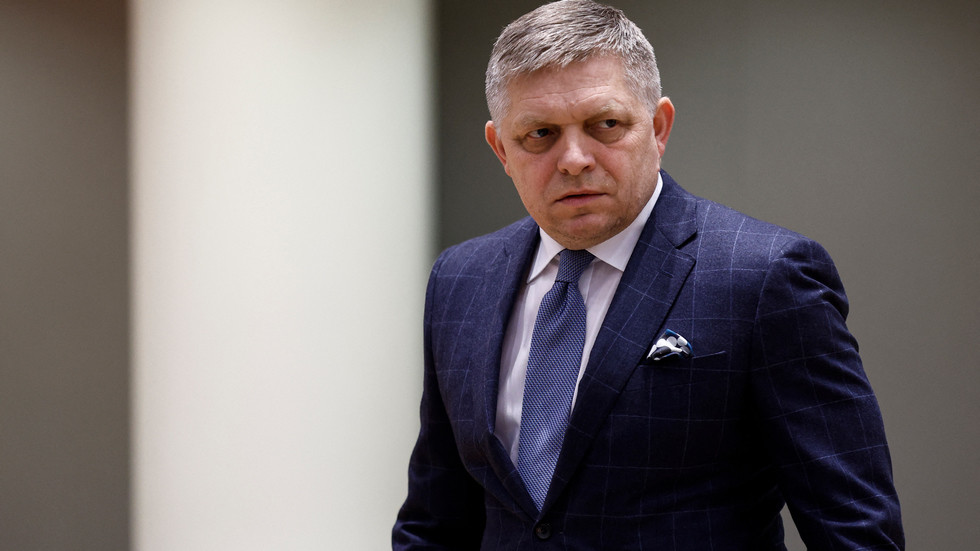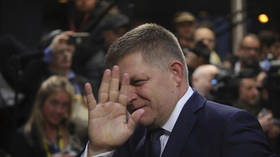
Despite all of the Western support, Kiev lacks the power to reverse the situation militarily, Slovakia’s Robert Fico believes

Prime Minister of Slovakia, Robert Fico arrives to attend a roundtable meeting during the EU-Western Balkans summit in Brussels, on December 13, 2023. © KENZO TRIBOUILLARD / AFP
No amount of Western weapons pumped into Ukraine will be enough to secure a victory over Russia, Slovak Prime Minister Robert Fico has said, adding that this means that the conflict has no military solution.
In an interview with the local Pravda newspaper on Friday, Fico – a vocal critic of sending arms to Kiev – suggested that while the West was trying its best to use Ukraine to “destroy” Russia both economically and militarily, this approach was doomed from the very start.
“This plan can never work, it is an absolute misunderstanding of reality and the real position of the Russian Federation,” he noted, recalling that Moscow has gained more territory than Ukraine this year, even despite the latter’s ill-fated counteroffensive.
According to Fico, while Western sanctions are certainly unpleasant for Moscow, it would be a mistake to think that “a Russian citizen is beating his head against the wall because he cannot buy an American phone” as he can simply buy a Chinese one.
When it comes to the battlefield situation, the West should honestly admit that “Ukraine does not have enough forces to militarily reverse the situation,” according to the premier.
We can pour all the weapons of the world, all the money there, and Russia will never be defeated militarily. It is the turn of 2023 and 2024, and you will see that Russia will begin to dictate the terms of settlement of this conflict.
Meanwhile, Fico recalled that Ukraine had a chance to end the conflict in its early stages by signing an agreement with Russia but walked away from the negotiation process after receiving promises of support from the West.

This past June, Russian President Vladimir Putin said that in the spring of 2022 Moscow and Kiev drew up a peace treaty in which Ukraine had committed to a neutral status. David Arakhamia, a Ukrainian MP who led Kiev’s delegation at the talks, later confirmed that this was one of Russia’s key demands. He also said that Ukraine broke off the engagement after then-UK Prime Minister Boris Johnson dissuaded it from taking the deal.
Several months after the talks collapsed, four former Ukrainian regions overwhelmingly voted to join Russia in public referendums, with President Vladimir Zelensky later barring negotiations with Moscow. Russia, however, maintains it is open to engagement with Kiev.
As things currently stand, “only a naive person” could imagine that Russia would contemplate leaving its new territories, Fico concluded.




